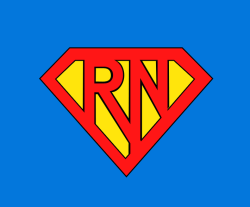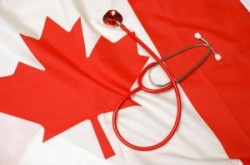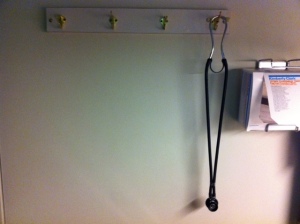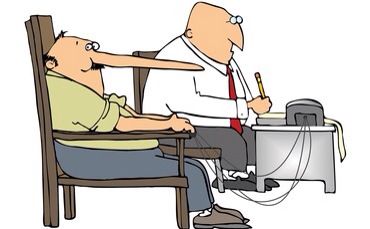
An open letter to ER nurses,
I would like to think that we do a reasonable job recognizing and acknowledging nurses for all of the hard work that they do, compassion, caring nature and dedication to their work.
We often talk about what nurses do for patients and their positive impact upon the healthcare system, but as we enter the busy holiday season, I would like to take a moment to reflect upon their contribution and influence on my life as an Emergency Medicine resident.
Being an senior ER resident isn’t easy; there is pressure to manage the department, to teach students and junior residents, to develop practice habits, and enhance one’s medical knowledge base. At times this can become overwhelming, particularly when we are exposed to difficult scenarios, traumatic experiences and the inherent chaos/unpredictability of the emergency department.
Recently, I had a fairly distressing experience at work; a difficult situation for me, the nurse and the patient. It can often be tough to compartmentalize things on a shift, but I had other patients to see, and so you typically bury your emotions and move on to the next patient.

The Federal government must engage in a healthcare discussion with Canadians; but the problem is that they’re not.
Lets be frank, Federal politicians don’t care about healthcare. They may say they do, but that is a fairly superficial statement, exemplified by the fact that none of the major parties have released a significant healthcare platform leading into the national election. This a major concern, because healthcare consistently ranks as a top priority amongst Canadian voters.
Further proof that federal politicians are reluctant to discuss healthcare comes from the lack of promotion and discussion regarding the Naylor report. The Naylor report was an advisory committee on Healthcare innovation and was supposed to be presented at a news conference in the spring – but was canceled and quietly published with little fanfare once it was revealed that it did not shine a favourable light on the state of healthcare innovation and support.
Guest post by Ming Yu.
I graduated from family medicine residency in Ontario three years ago. I`ve spent the last two years building up a family practice serving an underserviced population of non-English speaking new immigrants, as well as patients from about three to four local family physicians who quit prematurely due to burnout.

At least weekly I work one night until 12 a.m. to review labs and update my patients’ records, filling out disability forms and advocating for my patients by arranging home care. I make house calls after my clinic days for elderly patients, I do skin biopsies, freeze actinic keratoses and perform incision and drainages in clinic to save my patients the wait to see a dermatologist or a trip to the ER. Our clinic has worked hard to recruit GP psychotherapists, dieticians, ear-nose-throat surgeons, audiologists and even addictions services to help serve our patients better.
Guest Post by Robert O.
Medical narcissism is a term coined by John Banja in his book, Medical Errors and Medical Narcissism. Banja defines “medical narcissism” as the need of health professionals to preserve their self-esteem leading to the compromise of error disclosure to patients. In the book he explores the psychological, ethical and legal effects of medical errors. He talks about our need as physicians to constantly assert our competence and how this can cause otherwise capable, and even exceptional, professionals to fall into narcissistic traps.

– Narcissus (1590s) by Caravaggio(Galleria Nazionale d’Arte Antica, Rome)
He claims that:
“…most health professionals (in fact, most professionals of any ilk) work on cultivating a self that exudes authority, control, knowledge, competence and respectability. It’s the narcissist in us all—we dread appearing stupid or incompetent.”
Guest post by Shahbaz S.
Does patient satisfaction matter? If you’re a healthcare administrator you’re likely to believe so, as demonstrated by patient satisfaction surveys, hospital greeters and increased vigilance on ensuring enhanced patient satisfaction at all levels of healthcare.
While well intentioned, the premise behind this sentiment may be misguided. There is an idea that enhanced patient satisfaction correlates to better patient care, however, we’re merely muting more deeply seeded issues. By employing measures to enhance patient satisfaction, hospital administers are creating an illusion of better care. If a patient feels that they’re being attended to – they are more likely to view the hospital in a beneficial light.
 We’re often taught in residency and medical school that the number one reason for lawsuits and complaints is a lack of communication and dissatisfaction with the physician. I always facetiously interpreted this to suggest you could make many mistakes as a physician, so long as you were nice about it. I use this exaggerated analogy to suggest that efforts to enhance patient satisfaction could be viewed in the same light.
We’re often taught in residency and medical school that the number one reason for lawsuits and complaints is a lack of communication and dissatisfaction with the physician. I always facetiously interpreted this to suggest you could make many mistakes as a physician, so long as you were nice about it. I use this exaggerated analogy to suggest that efforts to enhance patient satisfaction could be viewed in the same light.
I’d instead, like to argue that a more important element to delivering excellent patient care is healthcare worker satisfaction.
Guest post by Nick C.
According to a Google spokesman, the company’s overarching philosophy aspires “to create the happiest, most productive workplace in the world”. After reading a little about their lofty goals, I thought to myself: boy, we should do that at the hospital. That would be awesome.

Now, like all of you, I’ve had my fair share of fantasies about getting a job at the Googleplex. If you don’t know what this is, Google it and spend some time dreaming about sipping unlimited free organic-soy-no-foam-extra-hot-lattes while on route to a massage, followed by a power nap during the middle of your workday. Free food, video games, exercise classes, and ping pong are just a few of the ways in which Google is trying to keep their employees “happy” and thus more productive. And productive they are! In 2014, according to the Interbrand ranking, Google was the second most valuable brand in the world (behind Apple) with a valuation of $107.4 billion. So what are the key contributors to this company’s success? While they appear to have created the perfect work environment, and were recently voted the top company to work for in America by Fortune magazine, there is a little more to their strategy than that. When Google established itself as a company in 1998, Larry Page and Sergey Brin (the founders) compiled a list of “Ten Things We Know to be True”. This list has served as a mission statement, which ultimately guides the company’s goals, culture, and decision-making. Despite being a multinational corporation with approximately 50,000 employees, the top executives continue to revisit this list periodically to ensure that their 10 truths still hold true.
Came across this excellent article that discusses why in the age of well-educated individuals with easy access to information (both reliable and unreliable), so many well-meaning people still doubt scientific facts and expert consensus.
The conclusion is eye-opening, and is in line with other studies like this one that demonstrates solely using logic and scientific facts on disbelievers will likely be ineffective in changing their minds. Even in the face of outbreaks, antivaxxers appear even more vocal about their stance on conspiracies and general mistrust of leading experts.
Guest post by George M.
Bed pressure: anyone who has worked in the Emergency Department has felt it. I make a routine practice to come in for my shifts 15 minutes early and find a dark corner of the ED where I can “take the temperature of the department” and get a sense of the day’s pressures. On a day with heavy bed pressure there’s a frenetic buzz in the air, a tension that is almost palpable – everyone knows we are working in a crisis situation, and you can feel it.
Recently, I worked a shift where we had 3 available beds in our 20-bed module within the ED, and about 8 available beds out of 60 department-wide. That’s serious bed pressure. In my corner before my shift starts, I see the charge nurse pass by and he looks just a bit more harried than usual. The department board has an overall look resembling a highway at rush hour. The Emergency Physician on the outgoing shift mentions to me that she is “trying to tidy up” and handover might be delayed, because she doesn’t want to burden me with risky follow-ups when she already knows the state of the place and what I’m going to be facing over the next nine hours. On this particular day, our nurse manager even had 5 admitted patients waiting in the departmental boardroom to try to free up space.
The health care professions have finally begun to revolt.
Over the recent years, medical associations have mustered up the courage to publicly denounce the value of having employees and students alike dragging their sick bodies into a doctor’s office (or *gasp*, an Emergency Room!) for the sole purpose of obtaining a sick note. The Ontario Medical Association officially issued their plea early this year, and Doctors Nova Scotia quickly followed suit.
And for the first time, an individual physician has started to take action by attempting to charge employers for sending their employees into the office for sick notes off work.
Guest post by Shahbaz S.
John Arnold, in Jurassic Park likely said it best; “Hold on to your Butts”. This is going to be a long rough winter inside Canadian Hospitals, because Ebola isn’t likely to kill Canadians, but Influenza certainly will.
In Medicine we rely heavily upon the media to help disseminate information and policy to the public, but unfortunately I suspect that they are currently doing more harm than good. The current Ebola crisis has taken over international news, and seems to be on the forefront of everyone’s minds; but are they setting us up for a potential disaster?




